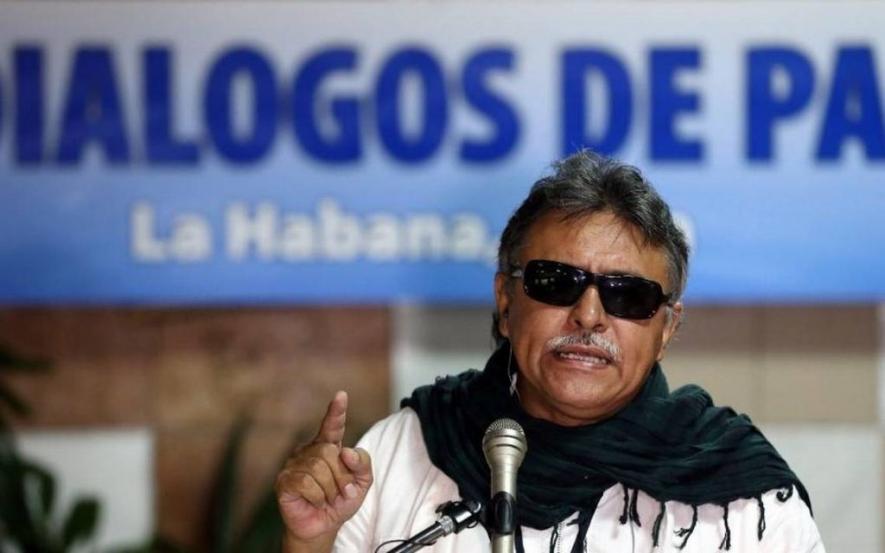Jesús Santrich’s Health in Danger After 33 Days of Hunger Strike

Over a month ago, Jesús Santrich, a member of the Peace Negotiation Team of the Revolutionary Armed Forces of Colombia-People’s Army (FARC-EP) and member of the FARC’s new political party, was arrested at his home in Bogotá for drug trafficking, in what was a clear violation of the Havana peace agreements. Shortly after his arrest, he announced that he would go on a hunger strike to denounce the current state of the Havana peace process and to demand liberation for all political prisoners.
33 days have passed since Santrich began his protest and his health is in a grave condition. Santrich suffers from epilepsy and has vision problems and though he has continued his medication for these issues, his health has deteriorated due to the impact of the hunger strike. On April 26, after 17 days of hunger strike, the National Penitentiary and Carceral Institute ordered the transfer of Santrich from La Picota Prison to a hospital in the south of Bogotá to prevent further complications to his health.
On May 4, the chief of the Verification Mission of the United Nations in Colombia, Jean Arnault, expressed his worry over the health of Santrich after he visited him in the Hospital El Tunal.
When he was arrested, Colombian authorities reported that his detention was at the request of the Drug Enforcement Agency (DEA) of the United States and that there was a possibility of his being extradited to the US. Santrich’s detention and imprisonment has been denounced heavily both in Colombia and internationally as it is in clear violation of the legal norms established in the Havana peace accords.
Article 71 of the Final Peace Agreement between the Colombian Government and the FARC states “Extradition cannot be conceded, nor preventative custody with the intention of extradition in regards to acts or behavior being studied by the Comprehensive System of Truth, Justice, Reparation and No Repetition”. In December 2017, Santrich submitted himself to the Special Jurisdiction for Peace, the special tribunal of the aforementioned Comprehensive System.
In addition to violating the peace agreements, Santrich’s defense has reported that the Attorney General has not been able to produce sufficient evidence against him. Social movements and human rights organizations believe his arrest and imprisonment is based not based on any hard truth or evidence but is rather another attempt to endanger the already threatened peace process.
Since the signing of the peace agreements, many organizations have denounced the fact that the situation for social leaders, human rights defenders and supporters of peace has gotten worse with a dramatic increase in threats, assassinations, arrests and general environment of hostility, intimidation and persecution towards those who support the peace process and social change. Even the demobilized FARC members have not been protected by the peace agreements.Over 40 FARC ex-combatants have been assassinated since December 2016 when the implementation of the peace agreements began.
Timoleón Jiménez, former commander of the FARC-EP and leader of the FARC political party commented: “I have always been convinced of the innocence of Santrich, I believe him. Until the contrary is proved, this is looking more and more like a set-up…When I hear that 200 armed men detained a blind man who is guarded by the police 24/7, and in order to move to any place, he must inform them, I realize that this goes beyond the accusation”.
Yesterday, human rights organizations announced that Santrich was transferred to a location offered by the Episcopal Conference for humanitarian reasons.
Get the latest reports & analysis with people's perspective on Protests, movements & deep analytical videos, discussions of the current affairs in your Telegram app. Subscribe to NewsClick's Telegram channel & get Real-Time updates on stories, as they get published on our website.
























